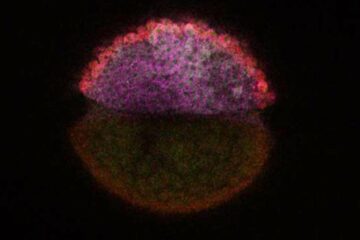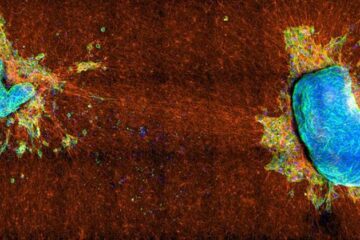Molecular basis for neurodegeneration in Ataxia telangiectasia

Ataxia telangiectasia (A-T) is a rare, genetic immunodeficiency disease that affects multiple organ systems and is characterized by neurodegeneration and cancer predisposition. A-T is caused by recessive mutations in the ataxia telangiectasia mutated (ATM) gene.
While existing animal models have established how ATM mutations contribute to genomic instability and cancer susceptibility, Dr. Wassarman’s paper reveals how ATM mutations cause neurodegeneration.
The scientists generated a Drosophila model of A-T, in which neurodeneneration occurs in the absence of induced DNA damage – as it does in human A-T patients. Thus, Dr. Wassarman’s model most faithfully recapitulates neurodegeneration associated with the human disease.
Using this model, Dr. Wassarman and colleagues determined ATM functions normally to prevent neurons from re-entering the cell cycle.
“At the end of the day, ATM-dependent arrest of cell growth is critical for both neuron function and tumor suppression,” explains Dr. Wassarman. Furthermore, he is excited by the findings, as they “point to possible therapeutic potential of CDC25 and other cell cycle inhibitors” to treat A-T as well as other neurodegenerative disorders.
Media Contact
More Information:
http://www.cshl.eduAll latest news from the category: Life Sciences and Chemistry
Articles and reports from the Life Sciences and chemistry area deal with applied and basic research into modern biology, chemistry and human medicine.
Valuable information can be found on a range of life sciences fields including bacteriology, biochemistry, bionics, bioinformatics, biophysics, biotechnology, genetics, geobotany, human biology, marine biology, microbiology, molecular biology, cellular biology, zoology, bioinorganic chemistry, microchemistry and environmental chemistry.
Newest articles

Decoding development: mRNA’s role in embryo formation
A new study at Hebrew University reveals insights into mRNA regulation during embryonic development. The study combines single-cell RNA-Seq and metabolic labeling in zebrafish embryos, distinguishing between newly-transcribed and pre-existing…

Study sheds light on cancer cell ‘tug-of-war’
How cancer cells tug against each other determines whether they can migrate elsewhere in the body. Understanding how cancerous cells spread from a primary tumor is important for any number…

Latest generation of self-dissolving stents
Magnesium implants support coronary arteries and keep them open. Constricted coronary arteries harbor dangers: Because the heart is not supplied with blood properly, this can lead to pain, cardiac arrhythmia,…





















